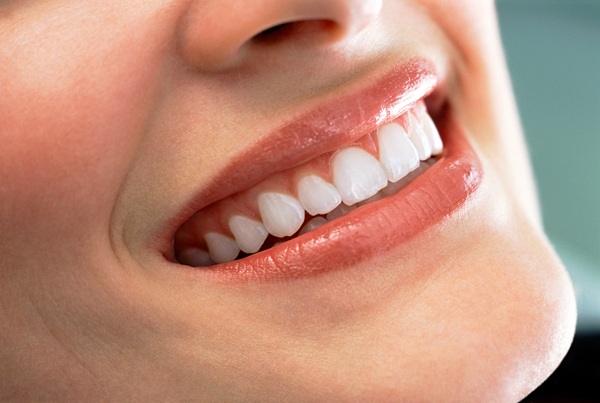Maintaining good oral health goes beyond the routine brushing and flossing we engage in daily. Dental checkups and cleanings play a vital role in preventing gum disease and ensuring overall oral well-being. Recommended at regular intervals, these checkups are aimed at more than just giving you a bright smile; they are a proactive approach to identifying and addressing potential issues before they escalate. In this blog, we will explore the significance of dental checkups and cleanings, understanding why they are essential for gum disease prevention and how they contribute to a lifetime of healthy teeth and gums.
What is Gum Disease?
Gum disease or periodontal disease is a common and potentially serious condition that affects the tissues surrounding and supporting the teeth. It often begins with the accumulation of plaque—a sticky film of bacteria—on the teeth. When plaque is not adequately removed through proper oral hygiene practices such as brushing and flossing, it can harden into tartar or calculus, providing a breeding ground for bacteria.
The early stage of gum disease is called gingivitis, characterised by red, swollen gums that may bleed easily during brushing or flossing. If left untreated, gingivitis can progress into a more advanced stage known as periodontitis. In periodontitis, the inflammation extends deeper into the supporting structures of the teeth, leading to pockets forming between the teeth and gums. As the infection progresses, it can result in bone loss, tooth mobility, and even tooth loss if not managed timely.
Gum Disease Symptoms
Below are the common signs and symptoms associated with gum disease:
- Bleeding gums
- Red or swollen gums
- Persistent bad breath
- Receding gums
- Pain or discomfort
- Pockets between teeth and gums
- Shifting or loose teeth
- Tooth sensitivity
Causes of Gum Disease
Statistics reveal a concerning trend in oral health, indicating that 3 in every 10 Australian adults grapple with moderate to severe gum disease. Some of the most common causes include:
- Poor Oral Hygiene: Inadequate brushing and flossing can lead to the accumulation of plaque, a bacterial film that, when not removed, evolves into tartar and triggers gum inflammation.
- Tobacco Use: Smoking or chewing tobacco is a significant risk factor for gum disease. Tobacco use weakens the immune system and hinders the gums’ ability to heal.
- Genetic Predisposition: Some individuals may be genetically more susceptible to gum disease. If there is a family history of periodontal problems, there might be an increased risk.
- Poor Nutrition: A diet lacking in essential nutrients can compromise the immune system’s ability to fight infections, including those affecting the gums.
- Medical Conditions: Certain systemic conditions, such as diabetes and autoimmune disorders, can increase the risk of gum disease.
- Hormonal Changes: Fluctuations in hormone levels, such as during pregnancy, menstruation, and menopause, can make gums more susceptible to inflammation.
- Stress: Chronic stress can weaken the immune system, making it harder for the body to fend off infections, including those affecting the gums.
- Misaligned Teeth or Dental Appliances: Crooked teeth or poorly fitted dental appliances can create pockets where plaque can accumulate, increasing the risk of gum disease.
As a pervasive issue, gum disease demands attention and proactive measures to ensure you can maintain healthy gums for the long term. Timely intervention not only helps detect early signs of gum issues but also ensures the thorough removal of plaque and tartar, safeguarding the longevity of your oral health and preventing the escalation of potential problems.
What is Included in a Dental Checkup and Clean?
Regular dental checkups and cleanings are essential components of preventive dental care, promoting early detection and intervention to maintain optimal oral health and prevent more serious dental issues in the future. The following elements are generally covered during your routine dental checkup and clean:
Oral Examination
Your dentist will conduct a thorough examination of your mouth, checking for signs of gum disease, cavities, and other oral health issues. This includes an assessment of your teeth, gums, tongue, and other oral tissues.
Digital X-Rays
X-rays may be taken to provide a detailed view of the teeth and supporting structures, helping identify issues that may not be visible during a visual examination, such as cavities between teeth, bone loss, or impacted teeth.
Professional Cleaning
A dental hygienist will perform a professional cleaning to remove plaque and tartar buildup from the teeth and along the gumline. This process, known as scaling and polishing, helps prevent gum disease and promotes optimal oral hygiene.
Gum Disease Evaluation
The depth of spaces between your teeth and gums (gum pockets) will be measured to assess the health of your gums. Elevated measurements may indicate the presence of gum disease.
Oral Cancer Screening
Dentists routinely check for signs of oral cancer, examining the lips, tongue, cheeks, and throat for any abnormalities, lesions, or lumps.
Bite and Jaw Alignment Assessment
Your dentist will assess your bite and jaw alignment to identify any issues that may contribute to dental problems or discomfort.
Evaluation of Existing Dental Work
If you have dental restorations (such as fillings, crowns, or bridges), their condition will be examined to ensure they are intact and functioning properly.
Discussion of Oral Health Habits
Your dentist will discuss your oral hygiene habits, and guiding on proper brushing, flossing techniques, and lifestyle factors that may impact your oral health.
Customised Treatment Plan
Based on the findings of the examination, the dental team will develop a personalised treatment plan if any issues are detected. This may include recommendations for further dental procedures or lifestyle adjustments to maintain the integrity of your smile.
How Do Regular Dental Checkups and Cleanings Help Prevent Gum Disease
Regular dental checkups and cleanings play a pivotal role in preventing gum disease by addressing key risk factors and promoting optimal oral health. Here’s how these routine appointments contribute to the prevention of gum disease:
Early Detection
Dentists and dental hygienists are trained to identify subtle signs of gum disease, such as bleeding gums, redness, and swelling. By catching these symptoms in their early stages, timely intervention can be initiated to prevent the progression of gum disease.
Plaque and Tartar Removal
Plaque, a bacterial film that forms on the teeth, can lead to gum inflammation and disease if not addressed. Thorough cleaning eliminates these substances, reducing the risk of gingivitis and more severe forms of gum disease.
Oral Hygiene Guidance
Dentists and dental hygienists offer tailored recommendations on proper brushing and flossing techniques. This customised guidance empowers you to maintain effective oral hygiene at home, minimising the accumulation of plaque and reducing the risk of gum disease.
Identification of Contributing Factors
Regular checkups involve an assessment of various factors that may contribute to gum disease, such as misaligned teeth or systemic conditions. Identifying and addressing these contributing factors are essential in creating an environment conducive to optimal gum health. This proactive approach helps prevent the development or progression of gum disease.
Prompt Intervention for Advanced Gum Disease
In cases where gum disease has advanced beyond the early stages, regular checkups enable prompt intervention. Timely treatment can manage the condition and prevent further complications, such as extensive damage to the supporting structures of the teeth or tooth loss. This early intervention is vital for preserving oral health and preventing the escalation of gum disease.
Related: Dental Hygiene Tips to Prevent Decay, Periodontal Disease, and Bad Breath
Take Charge of Your Gum Health Today!
At Bellevue Hill Dental, our commitment revolves around preventive dental care, aiming to minimise the necessity for invasive treatments. We firmly believe that the key to sustained oral health is imparting knowledge and empowering you with the skills to manage your dental well-being effectively.
When you enter our practice, you aren’t just a patient; you become an integral part of our dental family. Our personalised approach involves understanding your unique needs and concerns and tailoring our services to align with what suits you best. Our passionate team is dedicated to simplifying effective oral hygiene techniques, ensuring your dental care experience is not only comfortable and stress-free but also devoid of unnecessary interventions.
Schedule a consultation with us to experience dental care that revolves around your individual needs, and let’s initiate your path towards a healthier, happier smile.



